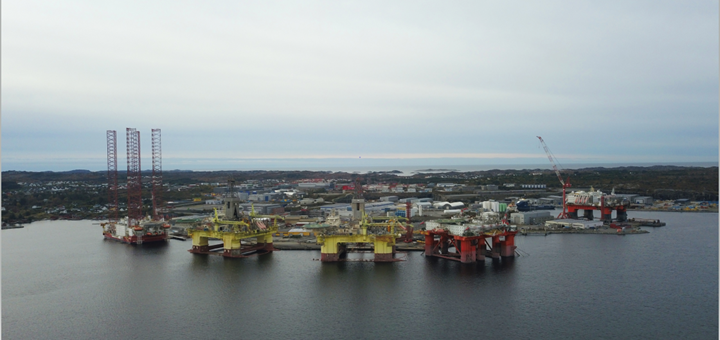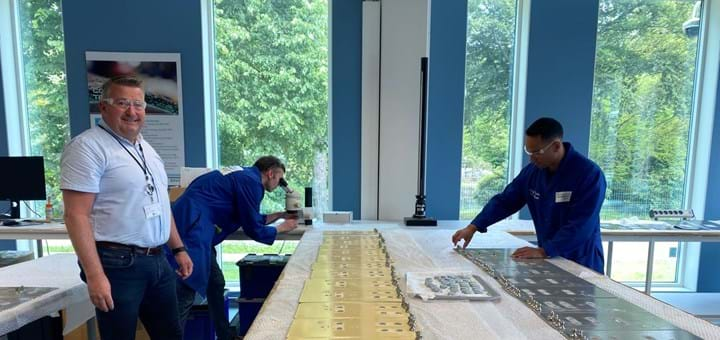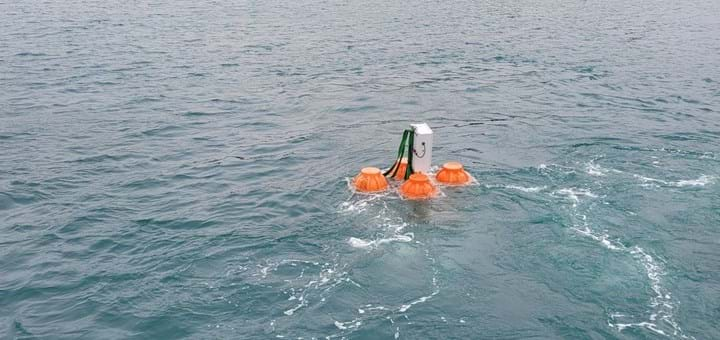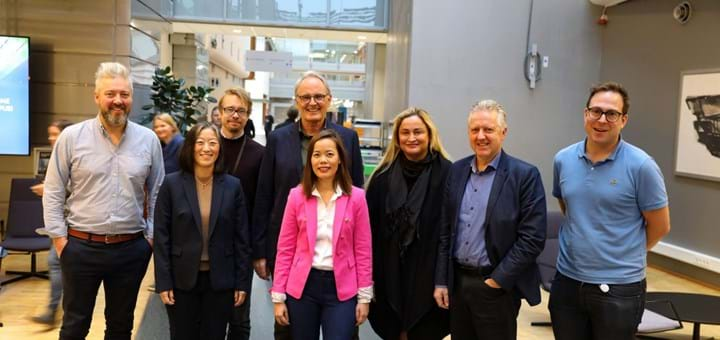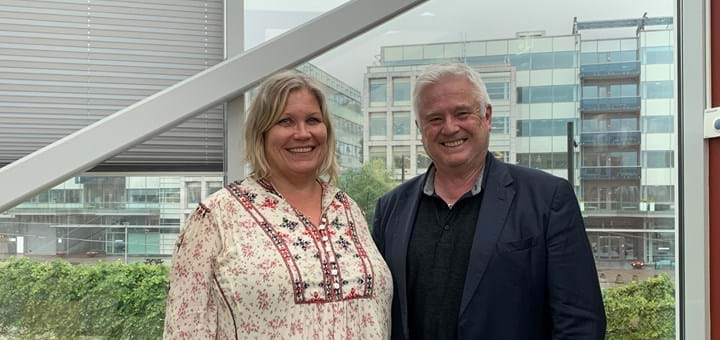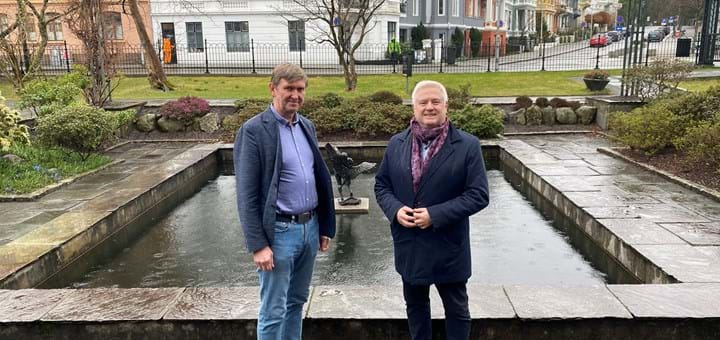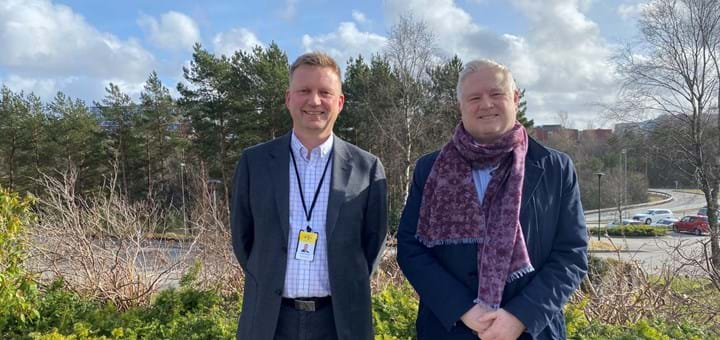Must be close to the industry
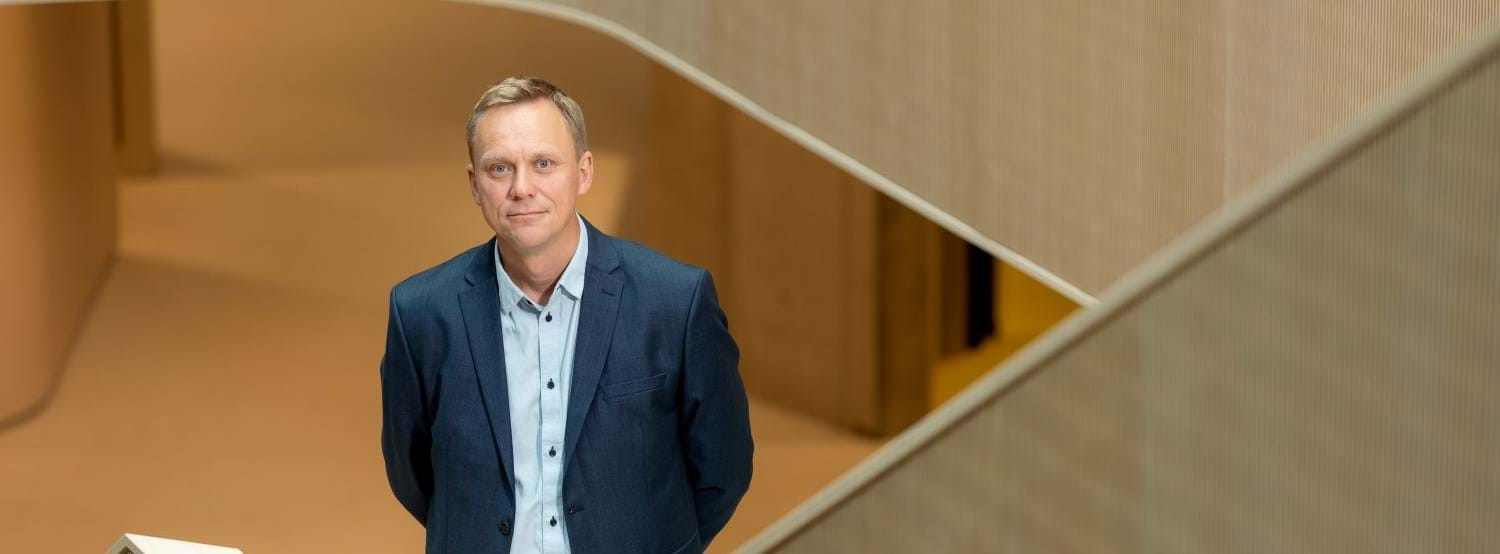
Collaboration between academia and business is very important for innovation and the entrepreneurial spirit in Western Norway.
– GCE Ocean Technology is a meeting ground for many actors in a common arena. This provides fertile ground for interaction. We get to know the company's needs, so that we can tailor for studies that provide new knowledge through student and research projects, says Jens Kristian Fosse.
3200 students
He is dean at the Faculty of Engineering and Natural Sciences at Western Norway University of Applied Sciences (HVL), a subject area with approx. 3,200 students who are looked after by around 400 professionals.
HVL wants to be a driving force for innovative and sustainable development, and interaction with the outside world is central.
– Engineering education has been conducted in Bergen for almost 150 years, which has been of great importance for imperative initiatives in the region, such as transport projects and the development of hydropower. And we are keen to create new industrial adventures in Western Norway.
Extensive experience
Fosse was involved in the early stages, when GCE Ocean Technology was established in 2006. HVL contributed to the application process and the start-up of the cluster which was then in then an NCE (Norwegian Centers of Expertise).
At a later period, he held a 40 percent position to connect research and education with the partners and members of the cluster.
– The goal was to connect the university sector and the business world, especially with regard to underwater technology where we had a three-year study at the university. It was perfect for cluster members such as FMC Technologies (now TechnipFMC) and Aker Solutions at Ågotnes, says Fosse, who has also held the role of vice dean for innovation at the faculty.
Many opportunities
HVL was established in 2017 through a merger of the University of Bergen, the University of Sogn og Fjordane and the University of Stord/Haugesund. This has resulted in five campuses across Western Norway; in Førde, Sogndal, Bergen, Stord and Haugesund.
Fosse himself is based at Kronstad in Bergen, where most of his studies in engineering and natural sciences take place.
He mentions three relevant examples where education and business benefit from each other:
- What used to be called underwater technology is now called ocean technology. This is an engineering course over three years, developed together with GCE Ocean Technology and adapted to the companies' wishes.
- Another important point is that the cluster's companies get to benefit from students who are out in internships or working on various student projects.
- The university has a master's degree in innovation and entrepreneurship, which was also established in close collaboration with the cluster.
A close community
– HVL is involved with the cluster's role as a driving force for innovation, where we contribute with research-based knowledge. It is crucial for us to have such a collaboration where we are close to the industry at all times, says Fosse.
He has registered an explosion in the number of clusters in recent years.
– We would like to be involved where it is relevant, and here GCE Ocean Technology is an excellent example. We have greatly benefited from the cluster in our work to develop and strengthen the educational offer and improve our research projects.
Contact Information


Facts
- Started in 1875 as Bergen Technical School. Later became Bergen College of Engineering and then part of Bergen College.
- HVL saw the light of day in 2017 when the colleges in Bergen, Sogn og Fjordane and Stord/Haugesund were merged.
- HVL has five campuses: Bergen, Førde, Haugesund, Sogndal and Stord.
- HVL is one of the largest educational institutions in the country, with around 17,000 students.
- Each year approx. 4,500 candidates are graduated and ready to solve important social tasks.
About
HVL is one of 18 partners from industry, R&D, academia and public bodies, which has recently signed a new 5-year agreement with GCE Ocean Technology.
The partners in the cluster are the leading force, and the backbone of the cluster's strategic work.
The partners get access to various arenas and projects where they meet potential customers, suppliers and partners. Here, valuable knowledge is developed and shared between the cluster's +150 partners, members and collaborators.

